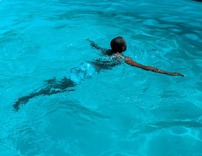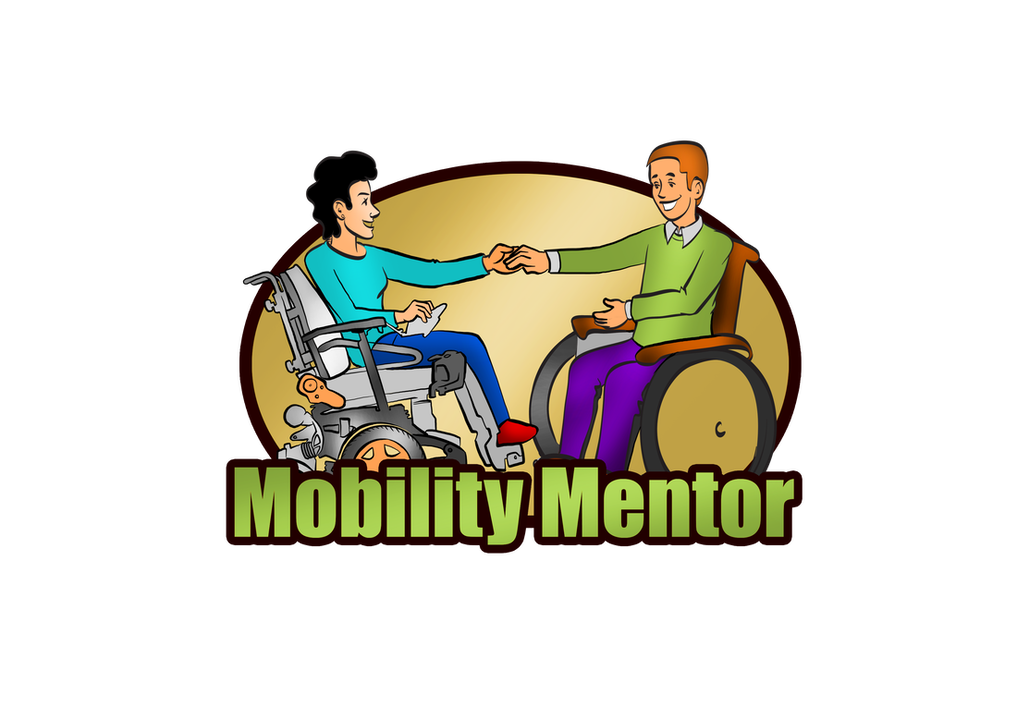 ,I love swimming. It's the one form of exercise where I feel completely free! The pool is the one place where I can stand without mobility aids. In aides and for the most part I can be pretty much pain free! Yes there is that pesky problem of needing an attendant to assist with undressing and redressing and yes it's very frustrating when I have planned to go swimming and my attendant cancels on the day that we have scheduled. But even though this occasionally happens, I still love going swimming. I believe that any form of movement no matter how big or small does a person with a disability well. When I enter a pool I generally move my legs and walk around for a bit. This helps me get used to the temperature of the water and I enjoy how my legs feel with the ability to walk in the pool. When I'm ready to start swimming I like to perform the backstroke. This stroke allows me to breathe without having to worry about getting water in my mouth, usually. However there are some exceptions to this especially when the pool ends to get crowded. (However I try to avoid swimming at peak hours as much as possible.) I love swimming laps. I find that laps allow me a good physical and cardiovascular workout as well. However, thing that is often frightened me is swimming on my stomach. This makes me feel uncomfortable because my legs tend to drop as I'm trying to swim. So I often swim in the shallow end when trying to swim on my stomach. Recently I went to a swimming clinic for folks with spinal cord injuries. At the clinic, they showed us how several different flotation devices can help people with disabilities to swim independently. At first I was very skeptical and hesitant to try various flotation devices. I really didn't believe they would work for me. But , sum of the devices did work for me. At the clinic I felt like a little kid who has learned to swim for the first time. The flotation devices have opened a whole new world in regards to my ability to swim. Am I still scared to swim on my stomach. Absolutely!! But, I'm slowly working through my fears, one stroke, one lap at a time.
0 Comments
The Disability Integration Act (DIA), This potential disability policy, will strengthen the Olmstead Decision. Supreme Court decision was based on accommodating people with mental disabilities to live as independently as possible in the community in which they live.
The DIA a is bipartisan legislation that people with disabilities have the right to receive to live independently and receive services in there home. Senators Chuck Schumer (D -NY) and Corey Gardner (R- CO) as well as Jim Sensenbrenner (R-WI) support this potential policy. Some key components of the act is that every person that is eligible for long-term care services has a federally protected right to live in the most integrated setting and have as much control as possible over a person's services and supports in order to live independently successfully. The bill gives Long-Term Care Services and insurance providers the ability to deliver services to people with disabilities with broad latitude. This is done without wasteful government spending. The bill also includes comprehensive planning that includes affordable, accessible, integrated independent of service of other services. |
AuthorWrite something about yourself. No need to be fancy, just an overview. Archives
October 2020
Categories |

 RSS Feed
RSS Feed